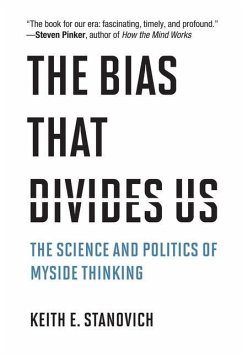
Human Nature and Public Policy
An Evolutionary Approach
Versandkostenfrei!
Versandfertig in über 4 Wochen
52,99 €
inkl. MwSt.
Weitere Ausgaben:

PAYBACK Punkte
26 °P sammeln!
Arguing for an evolutionary perspective, this book directly challenges the Standard Social Science Model (SSSM) on which public policy has often been based. The SSSM maintains that human behavior is solely the product of culture and learning. In sharp contrast, the Evolutionary Model (EM) holds that our behavior flows from the interaction between learning and culture, on the one hand, and biological factors-especially our evolutionary legacy-on the other. These different approaches to human behavior understandably lead to divergent conceptions of sound domestic and foreign policy. The SSSM vie...
Arguing for an evolutionary perspective, this book directly challenges the Standard Social Science Model (SSSM) on which public policy has often been based. The SSSM maintains that human behavior is solely the product of culture and learning. In sharp contrast, the Evolutionary Model (EM) holds that our behavior flows from the interaction between learning and culture, on the one hand, and biological factors-especially our evolutionary legacy-on the other. These different approaches to human behavior understandably lead to divergent conceptions of sound domestic and foreign policy. The SSSM views human behavior as essentially plastic and thus readily changed by governmental action. Disagreeing, the Evolutionary Model sees that malleability as seriously limited by our species' evolved propensity for aggression, status seeking, xenophobia, ethnocentrism, and hierarchical social structures.














